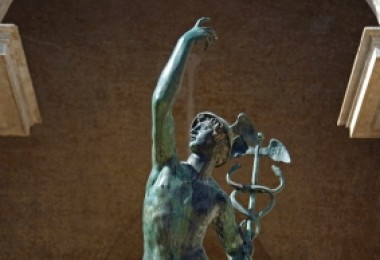Translation Romani has decided to maintain use of the word Romani in all language versions of this website, inclusively and in reference both to the language and people of all the diverse ethnic communities throughout the world, i.e. Roma, Sinti, Manuš, Calé, Romanichal, Kalé, and many others. Please read the important notes from our translators for explanations and other translations currently in use locally, nationally or regionally.
Close this box.
The academic discipline of Translation Studies emerged gradually, out of an increasing body of documentation produced by translators (translator prefaces, commentaries, etc.) and scholars trained in various disciplines, reflecting on the observations and concrete practices of translation that had transpired over hundreds of years. As the first academic to map out the parameters of the discipline (1972 / 1988), James Holmes conceptually divided it into two general categories (Pure and Applied), which comprise multiple theoretical and practical approaches relevant to the study of translation as a phenomenon in and of itself. Until recently, most histories of Translation Studies and publications on translation theories have been centered on the Western Biblical, classical and literary traditions. Eugene Nida, building on Chomskyan linguistics, was one of the first scholars (1969) to promote a "science" rather than an "art" of translating, using the voluminous corpora provided by Biblical translation as research material.
Throughout its relatively short history as an academic discipline, Translation Studies has produced insightful research paradigms that issue from the conceptual convergence of other disciplinary perspectives and of translation as an object of inquiry. The notions of equivalence and fidelity to the source text (and the word-for-word vs. sense-for-sense debates that ensue) have had a long history of translation commentary, in no small part due to the traditional esteem in which religious and canonical literary texts have been held by many cultures historically. Early linguistic approaches to translation study were comparative in nature, focusing on linguistic mechanisms, micro-linguistic points of correspondence, and the shifts that naturally materialized between two different linguistic systems in translation. German Translation Studies scholarship in the 1970s and 1980s would steer the discipline in the direction of contemplating translation as a highly communicative activity (Functional approaches), where specific text types and diverse purposes (Skopos) were viewed as guiding translators into using concrete strategies. In other words, a typology for translation was forcibly dynamic in nature, and the earlier focus on analysis at the word and sentence levels in translation moved to the macro-levels of textual and discourse analysis contextualized.
During the 1990s, Translation Studies flourished. Philosophical approaches to translation expanded the disciplinary discourse with notions of hermeneutic motion (Steiner), pure language (Benjamin`s "Task of the Translator" rediscovered), and deconstruction (Derrida). Polysystems theories (Even-Zohar) would inspire the development of new methodologies -- Descriptive Translation Studies (DTS) (Toury)-- which were distinctly reception-oriented, and which proposed that norms prevalent in target societies were what ultimately determined the adequacy and acceptability of translated texts, as the emergence of Hebrew-language literature in Israel pointed out. The paradigms of the 1990s also shifted more clearly in the direction of "culture". Responding to the need to more fully elaborate on the the definition of translation as "linguistic and cultural transfer", the "cultural turn" in Translation Studies benefited from the methodologies emerging from the burgeoning field of Cultural Studies in order to study translation phenomena as informed by discourses of ideology, gender, postcolonialism, poststructuralism, etc.
Throughout the first decade of the 21st c., research has principally focused on the positionings, visibility and ethics of the translator, particularly in terms of other social agents participating in the production of translations, for ex., the publishing industry. Likewise, new histories of translation have considered non-Western traditions and the role of the translator, a precursor to the body of contemporary work labelled as the new Sociology of Translation. Focus on the translator and on translation as process (rather than exclusively as product) has also renewed cognitive, psychological and neurolinguistic research approaches to translation. Think-Aloud-Protocols have their contemporary counterparts in fMRIs and sophisticated eye-tracking devices. Indeed, technologies have ushered in a new frontier for the discipline. Not only is translation a "text", it is also a "multi-media" semiotic creation, taking full advantage of Internet, voice and video technologies. Massive amounts of multilingual parallel corpora and translations produced on the Web, globalization, adaptation strategies in localization, and increasing use of machine translation online are likely to inspire Translation Studies research for decades to come.
References:
Baker, Mona (ed), Routledge Encyclopedia of Translation Studies, London / New York: Routledge, 1998.
Baker, Mona and Gabriela Saldanha (eds), Routledge Encyclopedia of Translation Studies. 2nd Edition, London / New York: Routledge, 2009.
Baker, Mona (ed), Critical Readings in Translation Studies, London / New York: Routledge, 2010.
Delisle, Jean and Judith Woodsworth (eds), Translators Through History, Amsterdam / Philadelphia: John Benjamins Publishing, 1995.
Gambier, Yves and Luc Van Doorslaer (eds), Handbook of Translation Studies. Vol. 1, Amsterdam / Philadelphia: John Benjamins Publishing Company, 2010. Also online. Translation Studies Bibliography Online (2004).
Malmkjær, Kirsten and Kevin Windle (eds), The Oxford Handbook of Translation Studies, Oxford: Oxford University Press, 2011.
Munday, Jeremy (2008), Introducing Translation Studies. Theories and applications. 2nd Edition, London / New York: Routledge.
Munday, Jeremy (ed), The Routledge Companion to Translation Studies, London / New York: Routledge, 2009.
Pym, Anthony, "Video Material" - Translation Studies. Online.
Venuti, Lawrence (ed), The Translation Studies Reader. 2nd Edition, New York / London: Routledge, 2004.

Zhavo mange (Kalderash)
Jertisar (Gurbeti)
Na xolyajve! (Lovari)
Zao mange but (Xoraxane)


